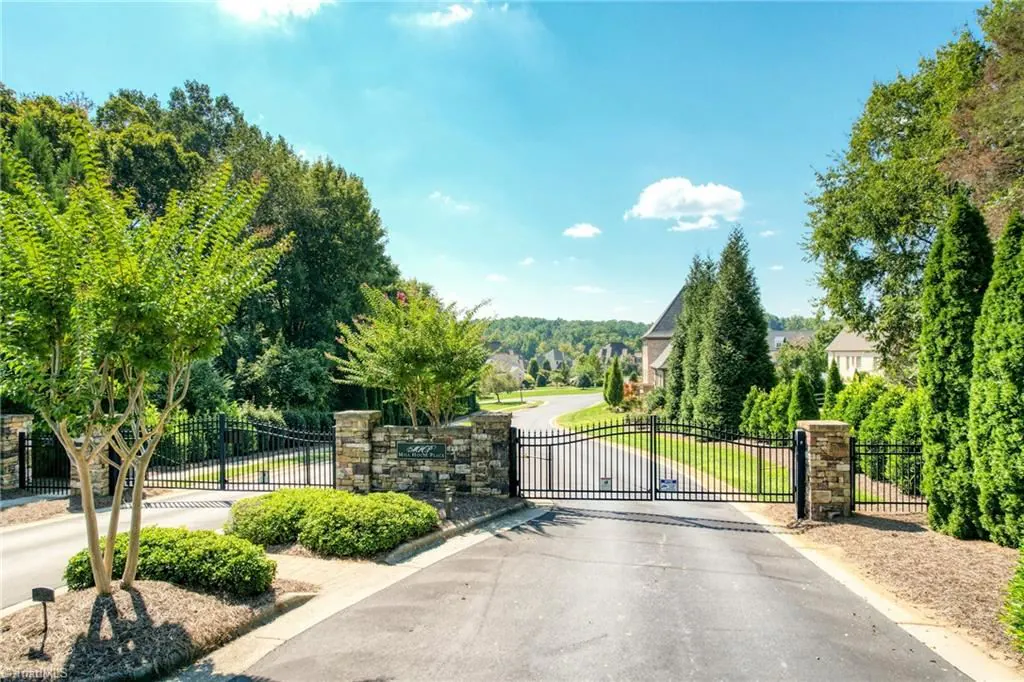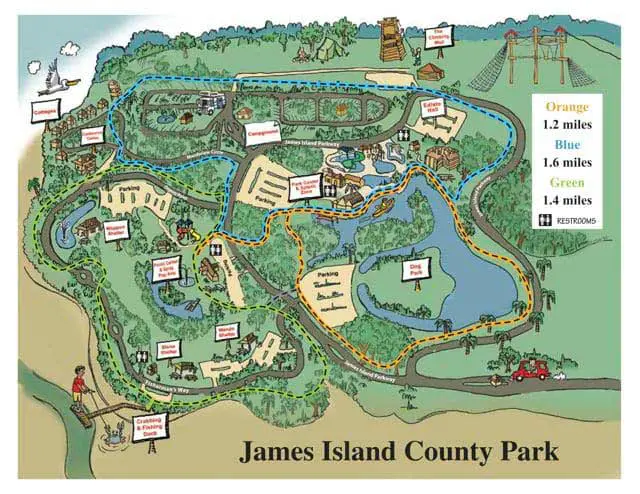What is a Private Road: Unveiling Exclusive Access Rights

As an affiliate, we may earn from qualifying purchases. We get commissions for purchases made through links on this website. You can read more on our Affiliate Disclaimer here.
A private road is a roadway owned and maintained by an individual or a group, not the government. It typically restricts public access and usage.
Private roads offer a unique level of privacy and control, often found in residential communities, gated neighborhoods, or industrial complexes. They come with the benefit of reduced traffic and enhanced security but also carry the burden of maintenance for those responsible for them.
Ownership and regulations surrounding private roads can vary, with some requiring permits or fees for access. Recognizing a private road is crucial for respecting property rights and understanding the responsibilities associated with these less-traveled paths.
Whether for exclusivity, tranquility, or practical access, private roads play a significant role in the way we navigate our living and working spaces.
The Concept Of Private Roads
Imagine a road that’s not for everyone. This is the idea behind a private road. It’s a path owned by an individual or a group, not by the public. Think of it like a personal driveway, but maybe longer and serving a few homes or businesses. Private roads are crucial for those who need a unique space to connect properties without public road intervention.
Defining Private Roads
What makes a road private? Ownership and access define it. Private roads are maintained by private entities, not by the government. These roads give access to landowners and are not open to general traffic. Let’s break it down into some easily digestible points:
- Owned by individuals, corporations, or housing developments
- Access can be restricted by gates or signs
- Maintenance is the responsibility of the owner(s)
- Often lead to private properties or provide access for specific services
Contrasts With Public Roadways
How do private and public roads differ? The most striking difference is access and maintenance. While everyone can use public roads, private roads are for select users. Public roads see maintenance by the government funded by taxes. Here’s a quick comparison table:
| Feature | Private Road | Public Roadway |
|---|---|---|
| Access | Restricted | Open to all |
| Maintenance | Private entity | Government |
| Funding | Private funds | Taxes |
| Use | Specific users | General public |
Understanding private roads’ roles in our infrastructure helps clarify how they fit into the broader transportation network. These roads are integral for those needing exclusive access, privacy, and control over their roadways.

Credit: www.media.stellantis.com
Historical Evolution Of Private Roads
The concept of private roads has been evolving over centuries. From being a sign of power and control during the feudal times to serving today’s exclusive access needs, the journey sheds light on how infrastructure has adapted to societal structures and demands.
Origins In Feudal Systems
Private roads date back to when land ownership defined power. Lords and nobles controlled land and the roads that ran through it. These roads were not public. Only those with direct permission from the landowner could use them. The control over these roads was a way to exert power and maintain order within feudal boundaries.
Modern Emergence
In more recent times, private roads have seen a resurgence. This time, they serve different purposes. From gated communities to industrial complexes, private roads limit access and provide security. They are built and maintained by private entities, reflecting a shift from public to private control over certain roadways.
Legal Frameworks Governing Private Roads
Legal Frameworks Governing Private Roads are crucial for understanding ownership, responsibilities, and rights. These laws dictate interactions between private road owners, users, and government entities. They encompass a range of regulations that highlight the unique nature of private roads compared to public ones.
Ownership And Property Rights
Private roads belong to individuals or entities. They have control over access. It’s not like public streets. Laws state who can use them. Owners set rules for their use. The owners have deeds. Deeds show property lines. Sometimes, many own a single road. They share rights and duties.
- Title deeds – Documents proving ownership
- Access rights – Who can use the road
- Land registry – Official record of ownership
Owners must respect others’ rights. Laws protect these rights. Sometimes, contracts add extra rules. Owners can sell or transfer roads. They must follow legal steps.
Maintenance And Liability Responsibilities
Road upkeep falls to the owner. It ensures safety and usability. If not, they face legal issues. Owners fix potholes and clear snow. They must also prevent hazards. This reduces accidents.
| Owner’s Duty | Examples |
|---|---|
| Repairs | Patching, resurfacing |
| Upgrades | Improving drainage |
| Safety | Installing signs |
Liability is key. Owners answer for injuries on their roads. Insurance is a shield. It helps in lawsuits. The law sets standards for maintenance. Owners must meet these standards. Not doing so leads to penalties.
- Regular inspection – Spotting issues early
- Documenting repairs – Keeping records
- Liability insurance – Protection against claims
Remember, private road management is a serious responsibility. Owners should always be aware of their legal obligations to avoid potential disputes and liabilities.

Credit: bas-ip.com
Types Of Private Roads
Welcome to our exploration of private roads! Different types cater to varying needs. Private roads serve an essential purpose. They provide controlled access. They maintain privacy. Understanding types of private roads is important. Let’s delve into the main categories.
Residential Private Roads
Residential private roads serve a unique function. They connect homes within private communities. These roads are not for public use. Homeowners or associations usually maintain them. Safety and privacy stand out as key benefits. They often feature:
- Controlled access to limit traffic
- Speed limits to enhance safety
- Maintenance responsibility lies with residents
Commercial Private Roads
Commercial private roads serve businesses. These roads link facilities like offices, malls, and industrial parks. They restrict public access. Security and efficiency are priorities. Key features include:
| Feature | Benefit |
|---|---|
| Enhanced security | Limits to authorized vehicles |
| Dedicated parking | Allocates space for employees and visitors |
| Custom signage | Guides traffic flow |
Access Rights And Limitations
Navigating the intricacies of private road access can be complex. Understanding who has the right to pass and what limits exist is key. This section addresses common issues surrounding access to private roads. We delve into granting access to non-owners and the restrictions and enforcement that maintain a road’s privacy.
Granting Access To Non-owners
Private roads offer solace away from public traffic. Still, access for certain non-owners might be necessary. This includes services like delivery, emergency, and maintenance crews. These access rights are typically defined through easements. An easement is a legal right to use another person’s land for a specific, limited purpose.
- Deeded Easements: These are recorded in property documents, granting enduring access rights.
- Prescriptive Easements: These may emerge over time through continued, open use.
Easement terms vary, outlining who can access the road and for what purposes. It’s essential to reference property deeds or court decrees for precise rights.
Restrictions And Enforcement
Private roads come with a set of rules that limit usage. These restrictions are pivotal to preserve the road’s private nature. Common limits include:
- Prohibited vehicle types or weight
- Access hours limitation
- Speed controls to ensure safety
Enforcement falls upon the road owners or a homeowners’ association (HOA). They can install gates or barriers to enforce restrictions. Violating private road rules can result in legal action or fines. Effective signage is vital. It communicates rules to all users and bolsters legal enforcement efforts.

Credit: olympics.com
Maintenance And Upkeep Challenges
Private roads pose unique maintenance challenges.
Ownership often brings responsibility for upkeep and repairs.
Without government support, residents must navigate these obstacles together.
Costs and Responsibilities
Costs And Responsibilities
Budgeting for repairs and regular maintenance can lead to unexpected expenses.
These may include:
- Snow removal costs
- Pothole repair expenses
- Drainage system upkeep
Owners must agree on a fair cost-sharing approach.
| Cost Type | Typical Responsibility |
|---|---|
| Snow Removal | Residents |
| Asphalt Repair | Shared Among Owners |
| Drainage Systems | Joint Responsibility |
Communal Management Strategies
Communal Management Strategies
Effective management requires coordination and collaboration.
- Create a road association
- Elect a management committee
- Agree on upkeep schedules
Use of special assessments and annual dues can fund ongoing costs.
A reserve fund also prepares for unexpected expenditures.
Impact On Property Value
The value of a property intertwines with many factors. Private roads often signal a unique charm. They impact residential value in notable ways. Let’s examine how this element shapes the worth of homes.
Perceived Exclusivity
Private roads foster a feeling of exclusivity. This sentiment can be appealing. Homeowners enjoy benefits including:
- Less traffic: Fewer cars mean more peace.
- Privacy: Greater separation from the public.
- Safety: Safer spaces for children and pets to play.
These factors can increase interest in a property. Higher demand often translates to higher value.
Potential Drawbacks
But, private roads can also present challenges:
| Maintenance Costs | Accessibility Issues | Emergency Services Access |
|---|---|---|
| Owners may share upkeep costs, affecting affordability. | Some roads may not be well marked, creating confusion. | Delays in service can occur, raising safety concerns. |
Such drawbacks can negatively sway a buyer’s opinion. They may lead to lower property values.
Understanding these dynamics is crucial. It empowers owners and buyers to make informed decisions.
Navigating Disputes And Negotiations
Private roads stir up unique challenges and opportunities. They offer seclusion but come with their own set of rules. Understanding how to navigate when disputes emerge is crucial.
Here we’ll explore effective strategies for managing and resolving conflicts that occur from sharing or maintaining a private road. This is key for peace between neighbors.
Conflict Resolution
It starts with open communication. A calm, clear talk can resolve many issues. Try to agree on use and upkeep. If needed, bring third-party mediators. This helps maintain neighborly relations.
- Discuss openly to understand each view.
- Create a plan all parties can support.
- Consider mediation for impasses.
Legal Recourse
When talks and mediation fail, legal steps may be next. It’s critical to understand your rights. Consulting a property attorney helps clarify your position. They can guide you through potential legal actions.
| Action | Benefit |
|---|---|
| Review agreements | Clarifies duties |
| File a complaint | Facilitates legal intervention |
| Seek injunction | Prevents further issues |
Remember, taking legal measures can strain relationships. Use them as a last resort. Aim for a solution that respects all parties’ rights and responsibilities. A peaceful approach is often the most effective for lasting results.
Frequently Asked Questions Of What Is A Private Road
What Is The Difference Between A Local Road And A Private Road?
A local road is accessible to the public and maintained by local authorities, while a private road is owned and maintained by individuals or organizations for restricted use.
Can You Drive On A Private Road In Texas?
Yes, you can drive on a private road in Texas if you have the property owner’s permission or if the road is open to public use. Always respect private property and traffic laws.
Who Owns A Private Road In Texas?
Private roads in Texas are typically owned by individual landowners or homeowners’ associations. Ownership is usually outlined in the property deed or established through local agreements.
Conclusion
Navigating the intricacies of private roads offers unique insights into property access rights. Our exploration underscores the value in understanding legal obligations, maintenance responsibilities, and usage privileges.
Remember, the essence of a private road lies in its restricted access, ensuring privacy and control for those it serves.
For homeowners or travelers alike, clarity on this matter paves the way for harmonious journeys ahead.

Hels On Wheels aka Helen Dainty is a full-time global hobo cycling around the world on a budget of AU$ 100 per week. She left the UK in 2004 and has been living out of a backpack ever since.




